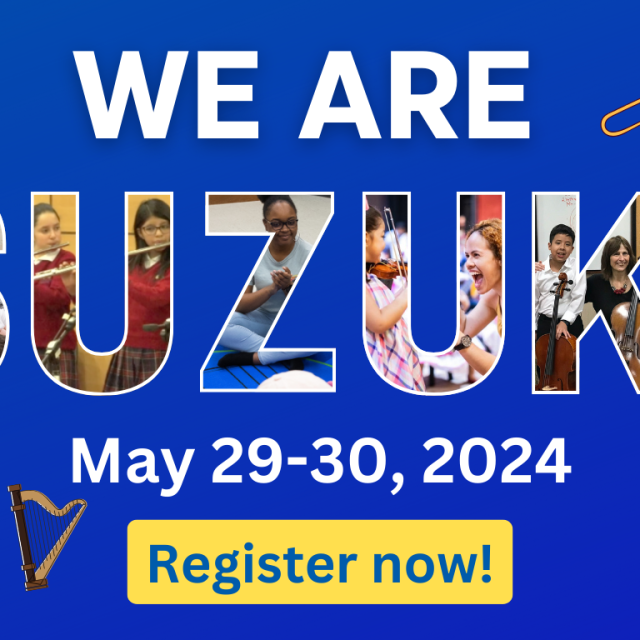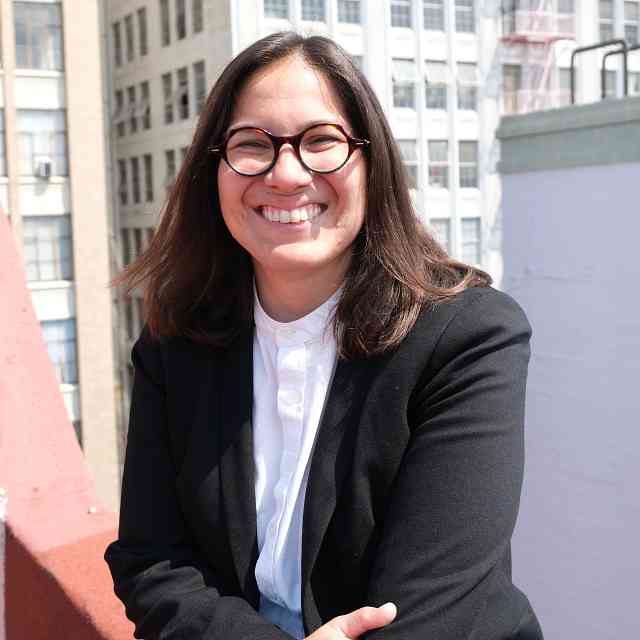We are, first and foremost, a learning community. As I’ve read through the articles for this issue of the American Suzuki Journal, I’m struck by a common thread amongst our pedagogical philosophies: curiosity.
As we practice the pedagogy and philosophy Dr. Suzuki offered to us, we share in our curiosity about how best to support students and the adults that work alongside them as they navigate a complicated—and sometimes devastating—world. In this issue focused on pedagogy, Annie Barley Givler asks us to better support students when things don’t go as planned, Leandro Candido demonstrates curiosity as a parent, exploring his son’s musical instincts, and our colleagues from the Dalcroze community ask what harmony exists between diverse approaches to music learning. We aim to embed curiosity into the hearts of our students while we try to get them to buzz for the first time, play a Mississippi hot dog rhythm (Yoda Yoda Jedi for some), or get them interested in new music. We aim to support them in asking questions rather than jumping to answers or conclusions. We aim to teach them to ask why they’re doing something, rather than just doing. If our students aren’t getting a new concept or idea right away, we hope they stay curious rather than walk away. While it is a surreal experience when our students catch on, some of my favorite moments are when they pause to ask why.
Our community of practice is rooted in the curiosity of Dr. Suzuki. He left us with so many questions and a legacy of work that only leaves room for more questions. Peter Block’s book Community: The Structure of Belonging encourages our communities to replace advice with curiosity to create spaces of belonging. It’s a task that’s difficult for me, as I, like so many classically trained musicians, often aim to provide answers, clarity, and structure. The balance is difficult to strike, but perhaps nobody is a better example of holding the two than Dr. Suzuki.
Among the many questions Dr. Suzuki posed in his work, he and I are driven by how best to reach all children of the world. We know fundamentally that with the right support, all young people can succeed, but what do we do when our students lack the support they need and deserve? Our most creative pedagogies have come from our community engaging with the big questions that don’t always have clear answers. Embracing our curiosities, as Dr. Suzuki did, is how we, as a community, continue to tackle the difficulties of our new realities.
I remain grateful to those in our community, committed to following Dr. Suzuki’s pedagogy—a structure of curiosity and a structure of stability for each of us. Thanks to all who have contributed to this issue. Please consider offering your own thoughts and perspectives in our next issue, focused on the theme of rejuvenation. Thank you, as always, for exploring the vast and complex questions that consume our pedagogical practice today.
Sincerely,
Angelica Cortez









